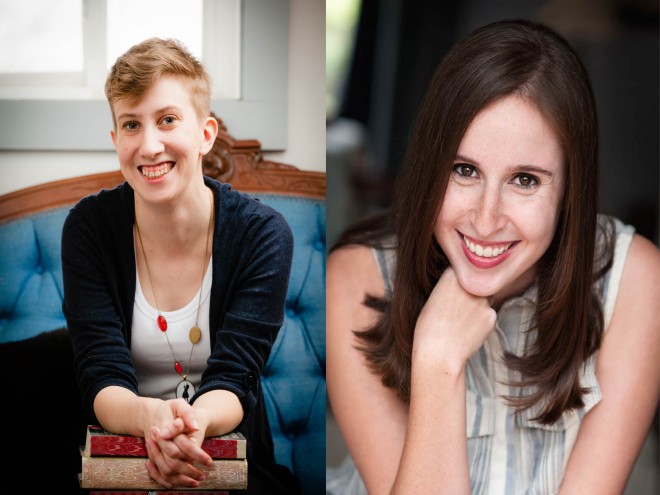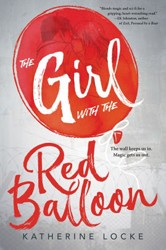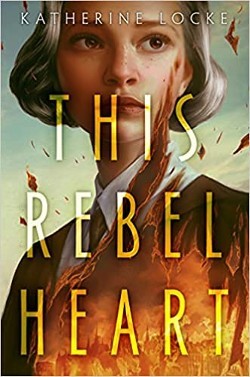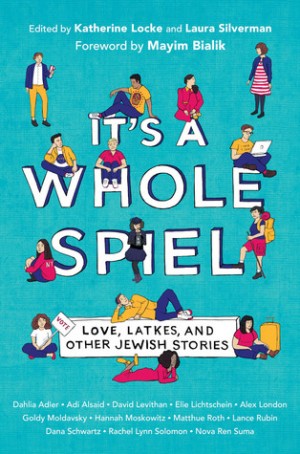
The morning after the 2016 election, I sat on the floor of my bathroom waiting for the shower to warm up, and thought to myself, “I have to get fit. So I can survive the camps.”
It was a devastating thought. I am sitting at my computer writing this for you because my great-grandparents escaped from Eastern Europe. The family members who did not leave perished at Babi Yar. Buchenwald. Dachau. And at other massacres and pogroms throughout Eastern Europe.
The camps have not come for me (yet). But everything else I feared would happen has happened at a more accelerated pace than even my worst nightmares. And for those more marginalized than me — people of color, Muslims, immigrants, Latinos — the effects of the current administration’s policies have been even more severely and swiftly felt. These are facts.
I got off the floor. I showered. I got to work. What else could I do?
At the time, I was writing the second book in my Balloonmakers series. In this series, blood magic becomes a way to free people from places of oppression to places of freedom, starting with the Holocaust. In the first book, The Girl with the Red Balloon, which came out just over two months before the election, a Jewish teenager from our time, Ellie Baum, accidentally time travels to 1988 East Berlin where she’s pulled into a conspiracy of history and magic. How she got there, and the magic that’s being created, is related to how her grandfather escaped a death camp.
The second book, the one I was writing, The Spy with the Red Balloon, was about two Jewish-American siblings, Wolf and Ilse, being pulled into WWII and finding their magic to be an important asset. In my original proposal for this book, neither Ilse nor Wolf knew about their magic at the start of the story. Wolf became a pilot, and Ilse went to Oak Ridge to work on the Manhattan Project. I had Ilse discover her magic at about the same time Wolf was shot down and imprisoned in Berga, a concentration camp where hundreds of Jewish or Jewish suspected American POWs were held.
In another world — the one where Nazis were not praising the president on Twitter, where Jewish community centers weren’t receiving bomb threats, and Muslims were not being banned from entering the country — that’s the version of the book I would have written.
But I didn’t write the book in that world.
I wrote it in ours.
I sat down to write Ilse’s half of the book, and the words came. But every time I needed to write a chapter about Wolf, I froze. I was sick to my stomach. I could not write a concentration camp, or even read about it for research, while I feared being in one, or witnessing others being taken to them.
By late February 2017, I was staring defeat in the eyes. I could smell its breath. It looked like a deadline, and a quarter of a novel that wasn’t working, and a topic I couldn’t even think about. I had to email my agent, and then my editor to say I’m struggling. The book I proposed isn’t the book that I can write, not anymore. I talked with writer friends and came up with a new plot, one that felt doable while tackling the same themes, issues, and relationships as the first plot. It was still about World War II and the Manhattan Project. It was still about siblings. It was still about Wolf and Ilse and the limitations and ambitions of magic users in this world.
But instead of being trapped in a concentration camp, Wolf is now a spy behind enemy lines, stealing Germany’s nuclear secrets and destroying their labs so they can’t build the nuclear bomb first. I gave Wolf the freedom of movement and choice; I gave him the agency to do what I needed to read characters doing. He punches Nazis. He kisses someone he loves, regardless of what society says. He finds himself and who he wants to be in the world despite of, or because of, the conflict and upheaval around him.
I wrote the book I need to read right now, an antidote to the political realities of our time. I wrote about queer Jewish teens fighting for the world they want over the world they live in, about a girl who struggles with the morality of what she’s supposed to be doing and her sense of patriotism, about a boy who is ferociously loyal and single-minded, and believes that principles still have a place in a time of war.
And though I sometimes wonder what the other, alternate-world version of The Spy with the Red Balloon looks like, I am proud of what it became.
Katherine Locke lives and writes in Philadelphia, where she’s ruled by her feline overlords and her addiction to chai lattes. She writes about that which she cannot do: ballet time travel and magic. When she’s not writing she’s probably tweeting. She not-so-secretly believes most stories are fairy tales in disguise. Her Young Adult debut, The Girl with the Red Balloon, won a 2018 Sydney Taylor Honor Award from the Association of Jewish Libraries and a 2018 Carolyn W. Field Honor Award from the Pennsylvania Library Association. You can find her online @bibliogato on Twitter and Instagram.



